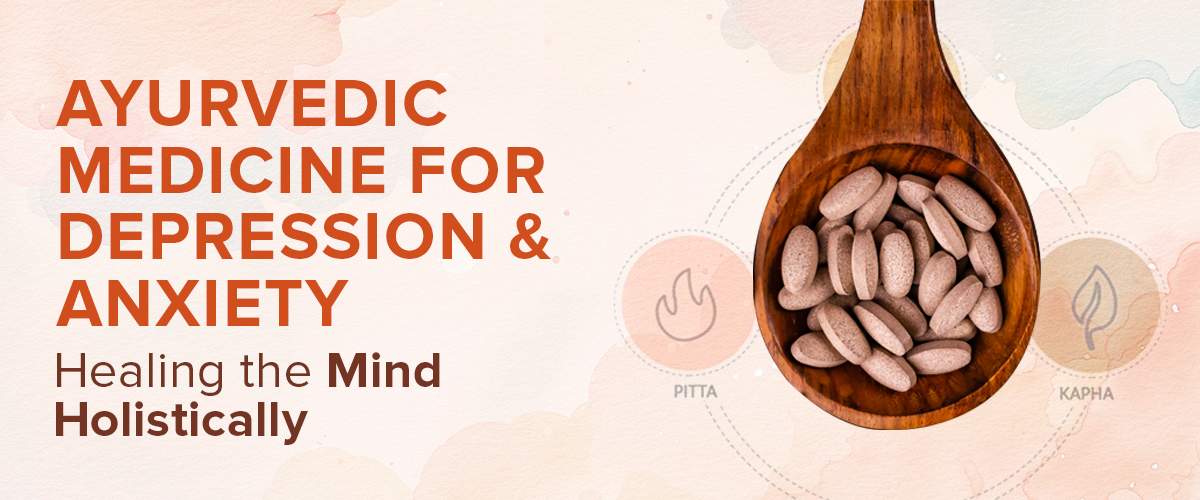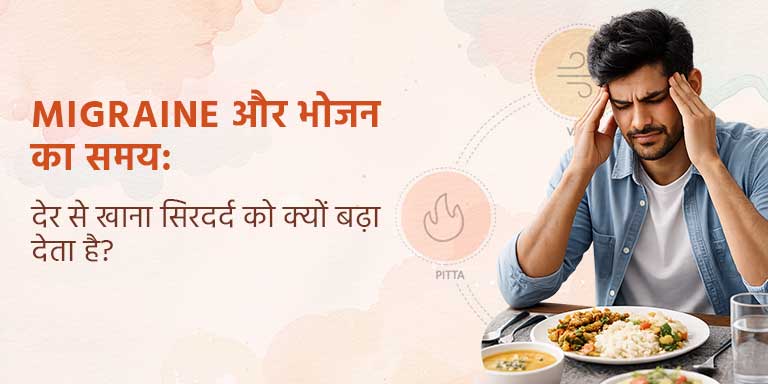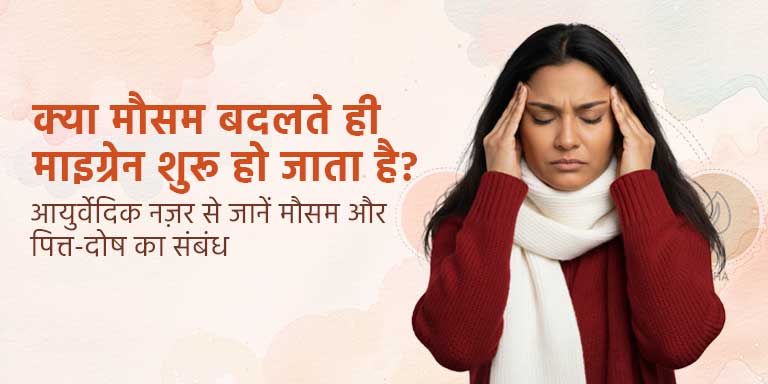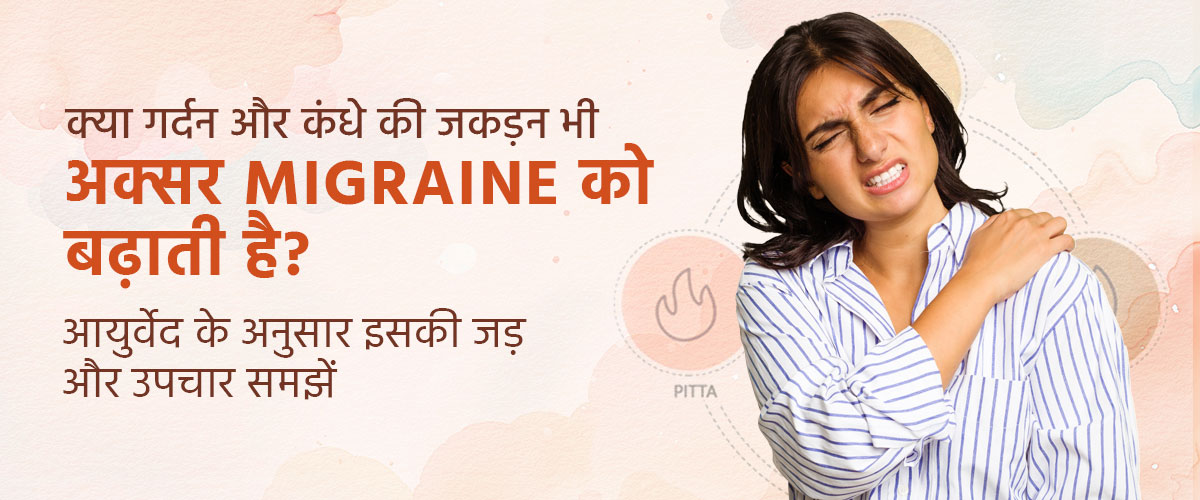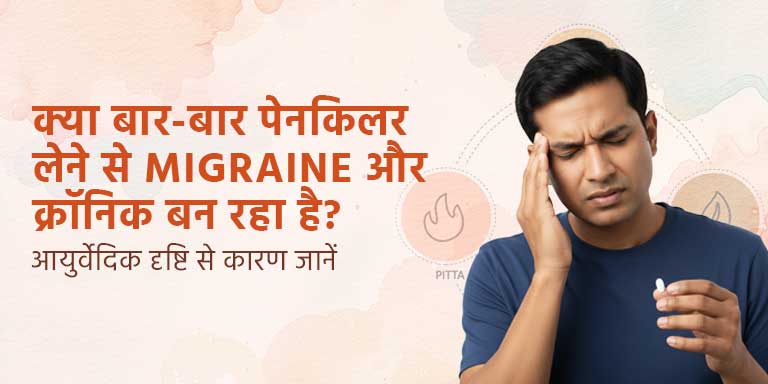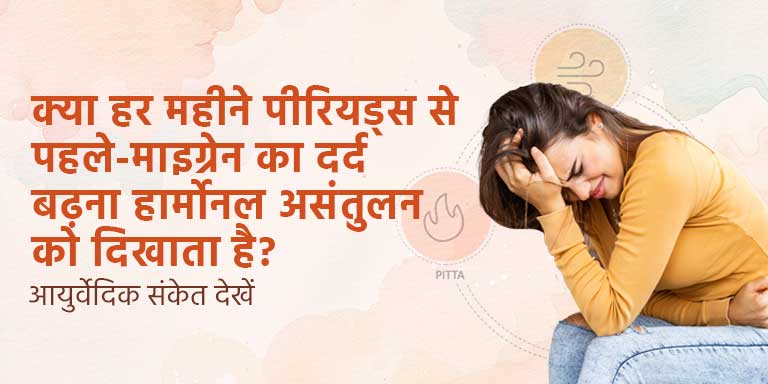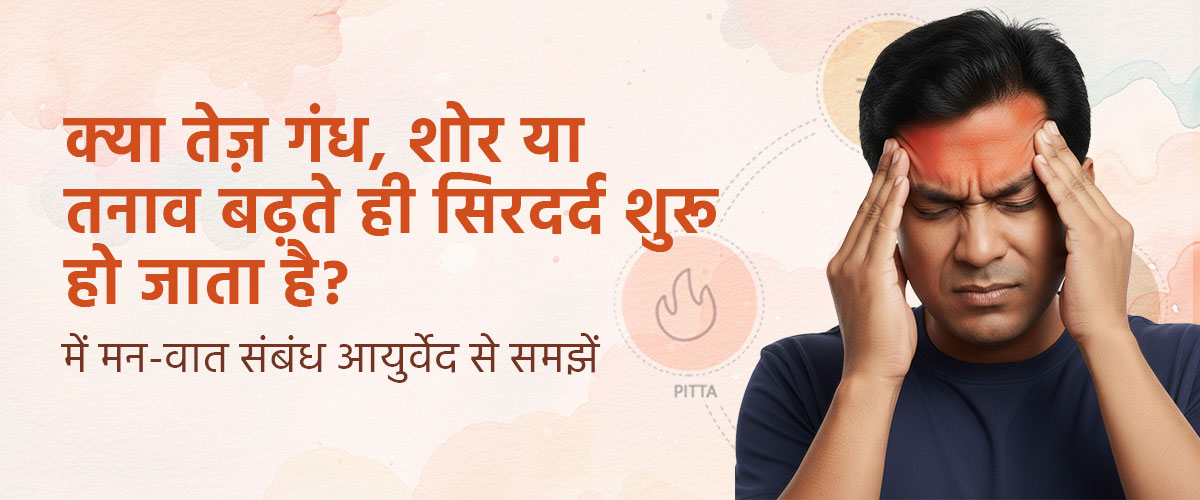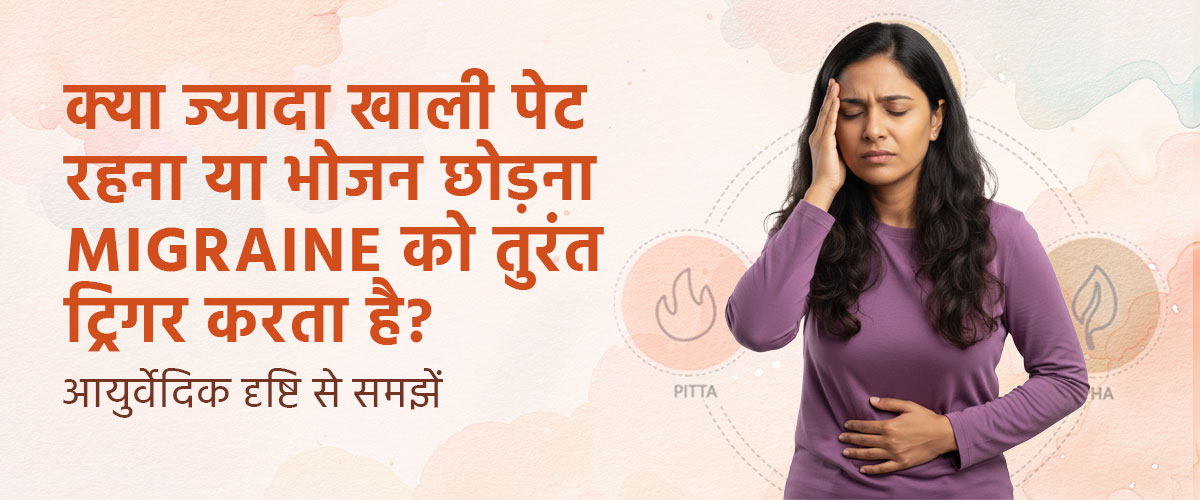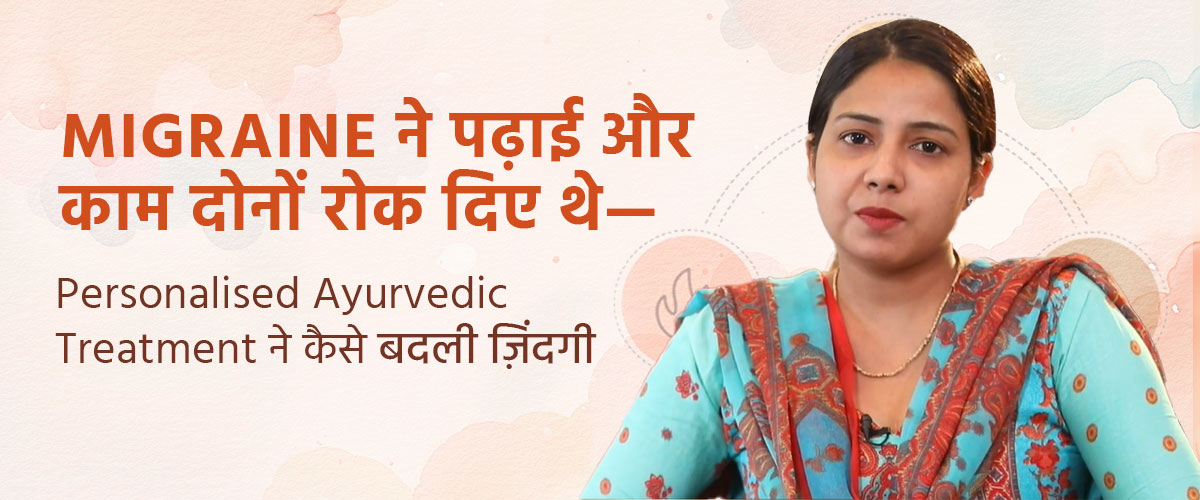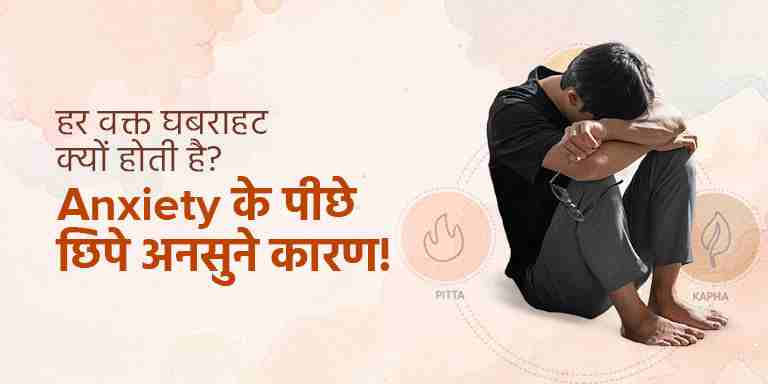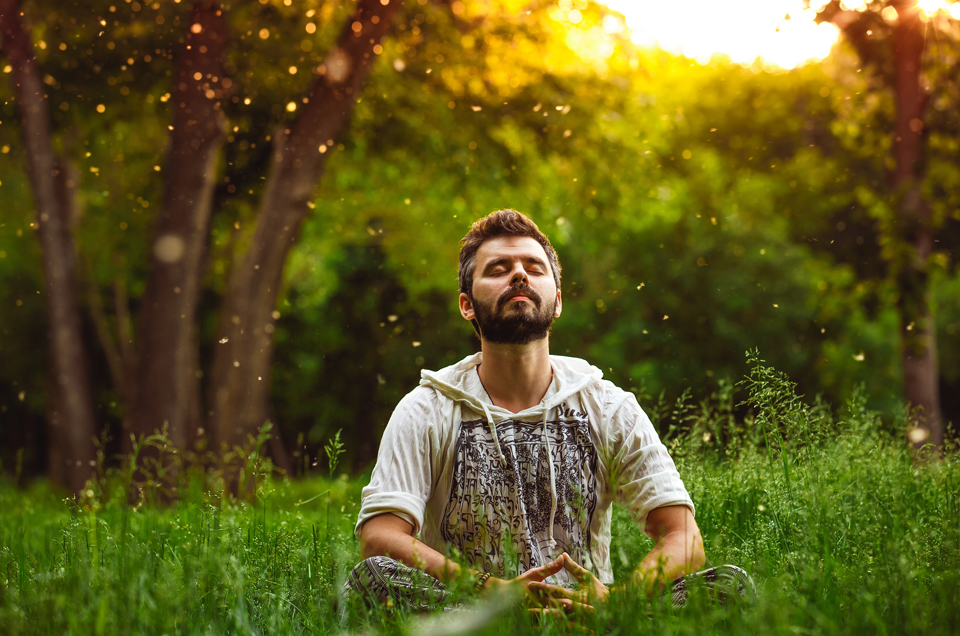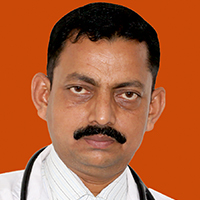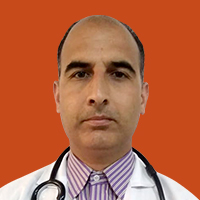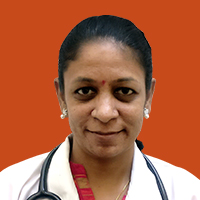In India, over 45 million people suffer from depression and anxiety, together affecting nearly 3.3% of the population (nearly 90 million people). But what we need to understand is that mental health challenges are not just statistics, they're actually the ground realities that affect our mood, energy, relationships and overall health.
As a result, many people now seek help from Ayurveda. Unlike modern medicines that work temporarily, Ayurveda offers a route to complete health using natural medicines, therapies, yoga and lifestyle changes to help balance your mind and body. With Ayurveda, you don't just get relief from symptoms; you begin a journey toward lasting mental wellness.
How Does Ayurveda Understand Depression and Anxiety?
Ayurveda considers your body and mind as a unified system made from three life energies or doshas - Vata, Pitta and Kapha. These doshas control your feelings, thinking, digestion, sleep and even your response to stress.
- Vata is associated with movement, i.e., your breath, heartbeat and thoughts.
- Pitta represents heat and metabolism, i.e., how your body digests food and processes emotions.
- Kapha governs stability and structure, i.e., your strength, sleep and emotional grounding.
When these doshas are balanced, you are healthy, calm and focused. But even when one dosha becomes imbalanced, it affects your mental state and leads to mental disorders.
For example:
- Vata imbalance makes you restless, anxious, fearful or have racing thoughts.
- If Pitta is high, you might feel irritated, angry or frustrated.
- Kapha disturbance can lead to low energy, lack of motivation, sadness and even depression.
Ayurvedic texts describe these conditions as Sramam (extreme tiredness of body and mind) and Unmadam (mental imbalance). These are considered deep imbalances that require more than surface-level fixes.
Why Does Dosha Imbalance Influence Your Mind?
Think of your body and mind as a three-legged stool. Each leg represents a dosha - Vata, Pitta and Kapha. When one leg is too long or too short, the entire stool gets unstable. The same thing happens when your doshas are out of balance.
Ayurveda thinks that the mind directly is linked with your body. So if your physical habits disturb the doshas, your mental state is affected too.
Pro Tips:
- Signs your Kapha might be imbalanced: Feeling lazy, emotional heaviness, overeating, sleeping a lot, lack of motivation.
- Signs your Vata is imbalanced: Dry skin, irregular sleep, cold hands and feet, anxious thoughts, split moods.
What Are the Best Ayurvedic Medicines For Anxiety and Depression?
Ayurveda offers various natural herbs to calm your mind, improve focus, and lift your mood without causing unwanted side effects. They've been used for centuries and are still backed today by professional Ayurvedic doctors.
Let us now consider some of the most powerful Ayurvedic medicines for anxiety and depression:
Ashwagandha: Also referred to as Indian ginseng, Ashwagandha reduces stress by reducing cortisol levels ( which is basically your stress hormone). It makes you stronger, much more relaxed, and helps with everyday anxiety.
Brahmi: Calms nervous thoughts and sharpens your focus. It works well if you are a student, working professional or if you are feeling mentally tired.
Guduchi (Giloy): This immunity-boosting herb also supports brain function and fights inflammation that increases stress or anxiety.
Bhringraj: Though Bhringraj is mostly used for hair care, this herb also has calming properties. It improves sleep quality and decreases restlessness and insomnia.
Shankhpushpi: One of the best herbs for anxiety, insomnia and panic attacks. It calms your nervous system, mind and also helps you sleep better.
Things to avoid with Ayurvedic medicines for anxiety and depression:
- No mixing with alcohol or strong modern drugs without advice.
- Avoid cold, processed and junk food that may slow down the action of herbs.
- Don't medicate on your own. Regularly consult with an Ayurvedic specialist for the correct mixture and dosage.
Can Panchakarma Really Help With Mental Health?
Panchakarma is one of the most effective therapies in Ayurveda for calming your mind and improving emotional balance. It's basically a detox for your body & mind both.
The following are some common therapies used to support mental health in Ayurveda:
Abhyanga (Oil Massage): Warm herbal oils are massaged over your body. This eases stress, increases circulation, and also calms your nervous system.
Shirodhara: A thin stream of warm medicated oil is poured over your forehead. It calms the mind, decreases stress, and also improves sleep quality.
Thalam: A herbal medicine paste is applied to the head. It cools your mind, reduces stress and mood swings and aids in anxiety.
Nasya: In this therapy, medicinal oils are put into your nose. This clears sinus channels and helps regulate emotions, clarity and memory.
These therapies help to lower your stress hormones (cortisol), calm your nerves and balance your doshas (Vata and Kapha).
Which Ayurvedic Practices Can You Follow at Home?
Other than therapies or herbal medicines, it's also about the way you live your everyday life that affects your mental state. Even small modifications in your routine can change how calm and focused you feel.
A major concept in Ayurveda is Dinacharya (daily routine). A regular schedule helps to keep your doshas in balance and reduces stress and anxiety over time.
- Start your day early, around sunrise.
- Use warm water to clean your mouth, tongue, and eyes.
- Practice 5-10 minutes of breathing (Pranayama) or silent sitting.
- Choose a light, warm breakfast that suits your body type.
- Walk or do some light yoga.
Another important practice is mindful eating. Pick Sattvic food which includes fresh, seasonal fruits and vegetables, whole grains, ghee and herbs. Avoid processed, fried or leftover food, which can upset your mental equilibrium.
You can also try self-massage (Abhyanga) with warm sesame or coconut oil. It helps to calm the nervous system and improve sleep.
And remember the basics: sleep and wake at the same time daily (including weekends). Your mind is best at work when your body is in rhythm.
Pro Tips:
- Quick morning routine: Wake before 6 AM, drink hot water, stretch your body, and sit for five minutes in silence before beginning your day.
- Foods that increase anxiety: Avoid caffeine, cold drinks, stale food, white sugar and fermented food items.
Final Thoughts
Feeling stressed or anxious is not something you have to live with forever. When your mind feels heavy or your thoughts don't seem to quiet down, Ayurveda shows you what is really going on inside you and how to fix it naturally. Be it a cup of herbal tea before bedtime, a few minutes of deep breathing every morning or herbal support like Brahmi and Ashwagandha, these small changes can make all the difference.
You don't have to figure it all out in a day. Begin with one practice that feels best for you. Maybe it's sleeping better, eating right or taking a Panchakarma therapy session. The Ayurvedic path is about healing with care, not rushing with pressure.
For personalised consultation on your mental health, talk to a Jiva certified mind coach today on 0129-4264323.
FAQs
What is the best medicine for depression & anxiety in Ayurveda?
Ashwagandha, Brahmi, Shankhpushpi and Jatamansi are commonly used in the Ayurvedic treatment of depression and anxiety. They quiet your mind and reduce stress. For proper dosage, consult an Ayurvedic doctor.
Could vitamin D deficiency cause anxiety?
Low vitamin D can affect your mood and cause anxiety. Common reasons are lack of sunlight and poor diet.
Does Vitamin B12 help with anxiety?
Yes, B12 supports brain function. Its deficiency can lead to depression, exhaustion and mood swings.
Does omega-3 reduce anxiety?
Yes, omega-3 helps with anxiety and with brain health. It is present in flaxseeds and walnuts in good amounts.
What deficiency causes anxiety?
The common ones include vitamin D, magnesium, vitamin B12, omega-3 and iron. These are essential for your nervous system health.



